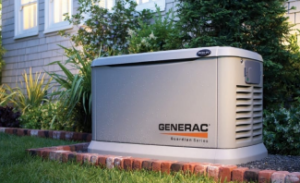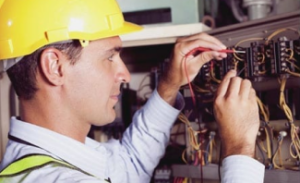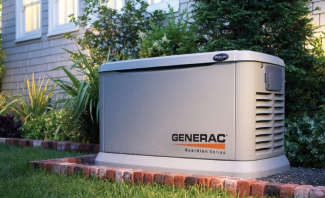Be Prepared: Make Sure Your Local Generator is Ready for Emergencies
In an emergency, being prepared and having the right equipment can be a game-changer. When it comes to natural disasters or utility disruptions, a well-maintained local generator can be your lifeline. Not only does it keep you connected and able to carry on with critical tasks, but it also brings peace of mind during a crisis.
Unfortunately, many people overlook the importance of having a reliable power source until it’s too late. That’s why it’s crucial to plan ahead and ensure your generator is in working order before disaster strikes. In this blog post, we’ll show you how to make sure your local generator functions properly when you need it most.
Invest in a Local Generator: Ensuring Power and Peace of Mind
Don’t leave your home or business vulnerable during a power outage or emergency situation. Make the smart investment in a local generator. With its reliable source of power, a local generator keeps your electricity running smoothly when others are left in the dark.
Here are the top reasons why having a local generator is so crucial:
- Continuous Power: When the lights go out, you’ll still be up and running. A local generator guarantees uninterrupted power, allowing your home or business to function as usual.
- Enhanced Security: Power outages often attract unwanted attention. But with a local generator, your lights, security systems, and essential equipment stay powered, protecting you from break-ins and theft.
- Long-Term Savings: Say goodbye to spoiled food and wasted money. A local generator saves you from costly losses, making it a smart investment in the long run.
- Comfort and Convenience: Don’t suffer through uncomfortable conditions. With a local generator, your HVAC system keeps working, ensuring a comfortable temperature at home or in the office, no matter the weather.
- Peace of Mind: Knowing you have a reliable source of power during emergencies reduces anxiety and gives you the peace of mind you deserve.
Make the wise choice and don’t wait until it’s too late. Install a local generator today to ensure the security, cost savings, and peace of mind that you need during any emergency situation.
The Ultimate Guide to Choosing the Perfect Generator
When the power goes out or is unavailable, having a dependable source of electricity is crucial. That’s where generators come in. With a variety of sizes, fuels, and power outputs to choose from, finding the right generator can be overwhelming. But fear not, because we’re here to help you navigate the decision-making process.
- Assess Your Power Needs: The first step in selecting the right generator is to determine how much power you’ll require. Consider the wattage needed for all the devices you want to run, from appliances to tools. Make sure the total wattage matches the generator’s maximum output.

Generator Maintenance and Repairing - Choose the Best Fuel: Generators can run on gasoline, propane, natural gas, or diesel. Each has its advantages and drawbacks. Gasoline is cost-effective but requires frequent refueling. Diesel offers a longer lifespan and better energy efficiency, making it ideal for commercial use but pricier. Propane is the cleanest and most reliable option, though it comes with a higher price tag.
- Consider Portability: Depending on your needs, you’ll want either a portable or stationary generator. Portable options are great for camping and outdoor activities, while stationary ones are perfect for home and business backup power. Make sure the size and weight of the generator are compatible with your storage space.
- Mind the Noise: Different generators produce varying levels of noise. If you’ll be using the generator in a residential area, opt for a quieter model to avoid disturbing your neighbors. Noise level can make a big difference depending on your specific usage scenario.
- Go for Quality: When it comes to generators, you want a brand and model you can trust. Look for reliability, durability, and sufficient power supply when selecting a generator. Always read reviews and check specifications before making a purchase. Additionally, a good warranty will ensure peace of mind and longevity.
By assessing your power needs, selecting the right fuel, considering portability and noise level, and prioritizing quality, you’ll be well on your way to finding a generator that’s dependable, efficient, and long-lasting.
Power Outages? No problem! Get the most out of your generator with these simple tips.
Don’t let a power outage catch you off guard. A generator is your reliable solution, but it requires some prep and maintenance. Here’s what you need to know:
- Read the manual: Before you start, read the manufacturer’s manual carefully. It’s packed with vital info on how to operate and maintain your specific model. Don’t forget to learn how to turn it off in an emergency.
- Check fuel and oil: Always check the fuel and oil levels before starting your generator. Use high-quality gasoline and follow the manufacturer’s recommendations. Keep track of usage hours for oil changes.
- Regularly start it up: Even during normal times, start your generator occasionally. This keeps the engine lubricated and in good shape. Plus, it helps you familiarize yourself with the starting process.
- Keep it clean and dry: A clean generator is a happy generator. Dirt can clog the engine, while moisture can damage electrical components. Store it in a dry place and use a waterproof cover.
- Monitor the electrical output: Don’t forget to check your generator’s electrical output regularly. Use voltage and frequency meters to ensure it’s producing the correct levels. Compare readings to the manufacturer’s specifications.
- Consider a transfer switch: For a safe and convenient solution, install a transfer switch to connect your generator directly to your home’s electrical system. No back feeding or other electrical hazards.
Follow these tips and the manufacturer’s recommendations to keep your generator in top condition and ensure safety.
Avoiding Common Generator Issues: Essential Tips for Reliable Power
Generators are a vital source of backup power, whether for emergencies, power outages, or outdoor activities. However, improper maintenance can lead to troublesome problems. Let’s explore the most common generator issues and discover how to avoid them.
- Overloading: Overloading is a prevalent problem with generators. When the power demand surpasses the generator’s capacity, it can shut down or sustain damage. To prevent overloading, know your generator’s wattage capacity and understand the power requirements of your appliances. You can also parallel multiple generators for increased power supply and to avoid overloading.
- Running Out of Fuel: Running out of fuel is another typical generator issue. To steer clear of this problem, regularly monitor your generator’s fuel level and refill it as needed. Installing a fuel gauge can also help you keep track and prevent running out of fuel.
- Proper Placement: The correct placement of your generator is crucial. It should be situated in a well-ventilated area, away from combustible materials such as buildings, trees, or bushes. Incorrect placement can lead to fire hazards or carbon monoxide poisoning. Always consult the manufacturer’s recommendations for the optimal generator placement.
- Regular Maintenance: Neglecting generator maintenance can lead to damage and shorten its lifespan. It’s crucial to perform routine tasks like oil changes, air filter replacements, and spark plug cleanings. A well-maintained generator will reliably provide power for years to come.
With these simple yet effective precautions, your generator will deliver uninterrupted power when you need it most.
Stay Safe: Essential Tips for Using a Local Generator
Local generators are a reliable source of electricity in times of power outages or when access to the power grid is unavailable. But, be aware that if they’re not used correctly, they can also pose significant safety risks. Ensure your well-being by following these important safety tips:
- Carefully read and adhere to the manufacturer’s instructions. This ensures that you’re using the generator safely and correctly.

Generator Repairing Technician - Only operate the generator outdoors, in a well-ventilated area. Carbon monoxide, a colorless and odorless gas, is emitted by generators and can be lethal if inhaled.
- Keep the generator away from windows, doors, or vents to prevent carbon monoxide from seeping into your home or building.
- Avoid touching the generator or its extension cords with wet hands or while standing in water. Electric shocks can occur.
- Prior to refueling, switch off the generator and let it cool down for a minimum of 15 minutes. Gasoline is highly flammable and can spark if it encounters hot surfaces.
- Store gasoline in a well-ventilated area, away from any potential heat sources or flames.
- Under no circumstances should you operate the generator indoors, in a garage, or in a basement. Enclosed spaces can quickly accumulate deadly levels of carbon monoxide.
By adhering to these safety tips, you can confidently and effectively use your local generator while keeping accidents at bay. Always remember that generators are powerful machines that require careful handling and attention to detail.
Essential Tips for Safely Operating Your Generator During an Emergency
Don’t be caught unprepared during an emergency – make sure you know how to use your generator safely and effectively. Follow these important tips to avoid complications and ensure you have access to essential electricity when you need it most.
- Choose the Right Generator: Consider your electricity needs and choose the right generator that suits them. Determine the best fuel source – gasoline, diesel, or propane – and make sure you have an ample supply on hand.
- Set Up in a Safe Location: Find a secure area away from your home and any flammable materials to set up your generator. Level ground is essential, as is proper grounding to prevent electrical shocks. Remember to point the exhaust away from buildings.
- Follow Manufacturer’s Instructions: Carefully read and follow the instructions provided by the manufacturer for starting and operating your generator. Monitor the oil level and temperature gauge, and always allow the generator to cool before refueling. Avoid overloading or modifying the machine.
- Regular Maintenance: Keep your generator in top working condition by performing routine maintenance tasks. Change the oil, check the spark plugs, and clean the air filter as necessary. This will ensure your generator is ready when you need it.
By taking these precautions, you can confidently operate your generator during an emergency, knowing that you’ve done everything possible to keep yourself and your family safe. Don’t underestimate the importance of proper generator usage – it could be a lifesaver in a critical situation.
Be prepared for any power issue with a local generator. Gain peace of mind and energy security knowing you have the ultimate guide to choosing, using, and safely operating your generator during an emergency. No need to worry about breakdowns, maintenance, or safety concerns. Empower yourself today and be ready for whatever life throws at you – start by investing in a local generator now!
https://www.google.com/maps?cid=3969260459347426251

